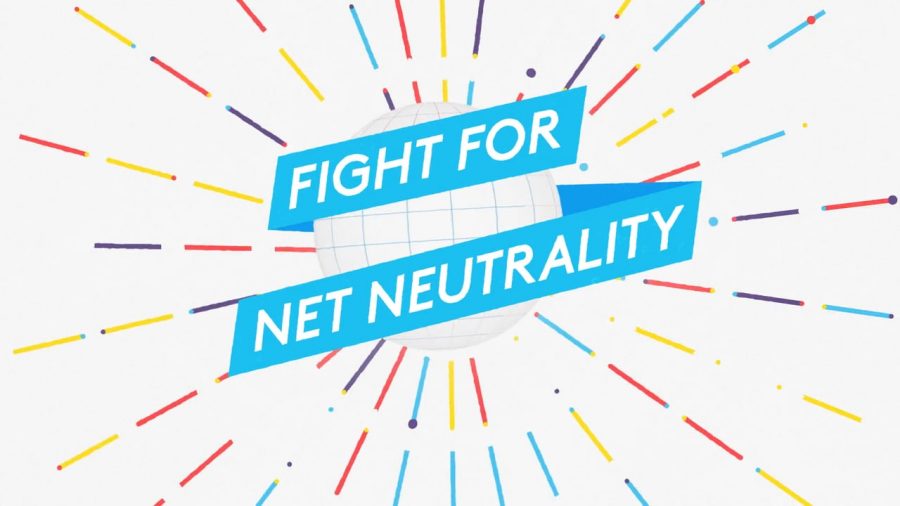Fighting for neutrality
December 2, 2017
The Federal Communications Commission is expected to reach an agreement to repeal net neutrality Dec. 14. The repeal was proposed by Chairman Ajit Pai and is expected to pass in the Republican-controlled commission. Net Neutrality is a group of regulations that demand internet data packets be treated as a public utility, such as water and electricity. This means that internet data packets cannot be divided by quality or quantity in a manner similar to cable televisions. All consumers are guaranteed open and equal content not matter who their internet service provider is.
Net Neutrality has been the focal point of many debates and rewriting of regulations for the past decade due to telecom corporation lobbyists. The most recent proposal, written by FCC Chairman Ajit Pai, would undo all regulations regarding Net Neutrality created under the Obama Administration. The existing regulations prohibit I.S.P.s from stopping or slowing down the delivery of websites. Additionally, these regulations prevent the companies from charging customers extra fees for high-quality streaming and other services. “Under my proposal, the federal government will stop micromanaging the internet,” Pai said in a statement. “Instead, the F.C.C. would simply require I.S.Ps to be transparent about their practices so that consumers can buy the service plan that is right for them.”
Under this proposed plan, the telecom corporations will be able to block access, throttle speeds, and divide the internet into packages and services so long as they notify the consumers. The plan Pai presents is widely expected to be approved Dec. 14. Pai and the two other Republicans on the commission hold a majority over the two Democrats on the commission.
Both telecom and internet companies have been lobbying hard both in Washington and to the public. Companies like Amazon and Google have been directly pitted against telecom giants like AT&T and Verizon. Lobbying will only become more intensive in the next three weeks, but there are many steps consumers can take to ensure that net neutrality remains intact.
Though telecom companies claim that the regulations lead to a decrease in business productivity, Michael Watkins, ’18, founder of a startup I.S.P., believes otherwise. “None of the regulations have ever truly restricted me,” Watkins said. “When companies say that, they are just saying that to get the favor of politicians.”
On the contrary, Watkins believes that his startup has been restricted by the F.C.C.’s own regulations. “The F.C.C. has always been difficult to deal with,” Watkins said. “The hardest part of being an ISP is the FCC has so many registrations and licensing requirements that are designed to kill small companies like me.”
Watkins gave the example of the F.C.C. requiring cell-phone frequency lines for startup telecom companies. One of these lines costs nearly 16 million dollars. “Those regulations are the ones that are truly killing the industry, but that’s not what the telecom giants want to be targeted, they want to target things like net neutrality because it’s an inconvenience for them,” Watkins said.
The most frustrating part for Watkins is that the I.S.P.s seem to be contradicted the values that the internet was founded on. “The only reason the internet is global and it works is because it was a cooperation between people sharing things transparently,” Watkins said. “The internet only functions because there are non-profit organizations designed to keep the internet open and free, the very fundamentals of internet protocol were designed to be open and free. ”
The first step is to call your local representative. For those who live in the Johnston area, call congressman David Young. Young can be found at https://davidyoung.house.gov/contact. Additionally, anyone in the state of Iowa should be calling senator Ernst and Grassley. They can be reached at https://www.ernst.senate.gov/public/index.cfm/contact and https://www.grassley.senate.gov/explore/washington-dc-office, respectively.
A protest outside the Verizon store on Walnut street will also be held Dec. 7, at 5 p.m.
Even if net neutrality passes as expected, that doesn’t mean the battle for neutrality is over. “People can always say ‘screw the networks’,” Watkins said. “Cuba has an underground network of teenagers creating their own internet service, and that’s a possibility. ”






